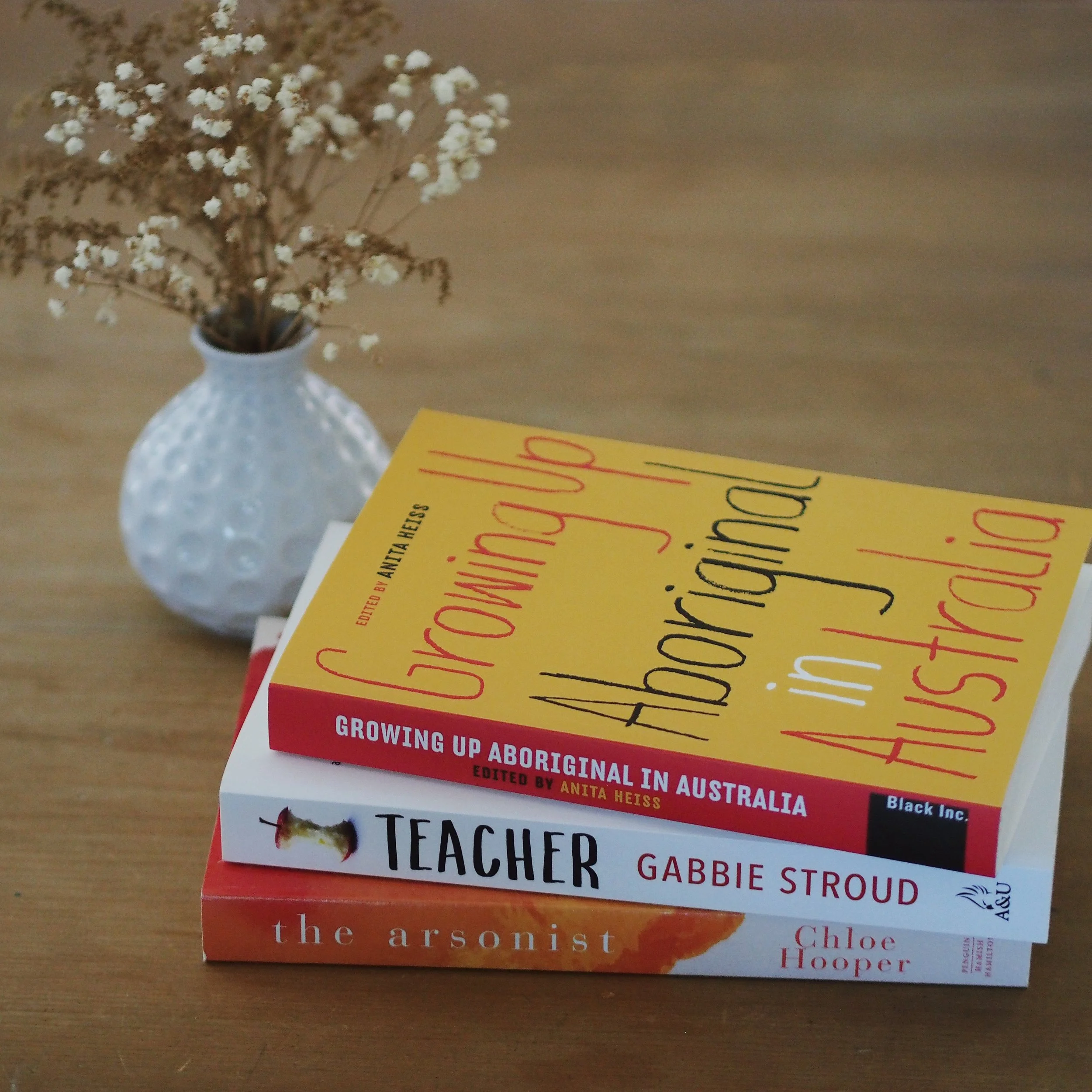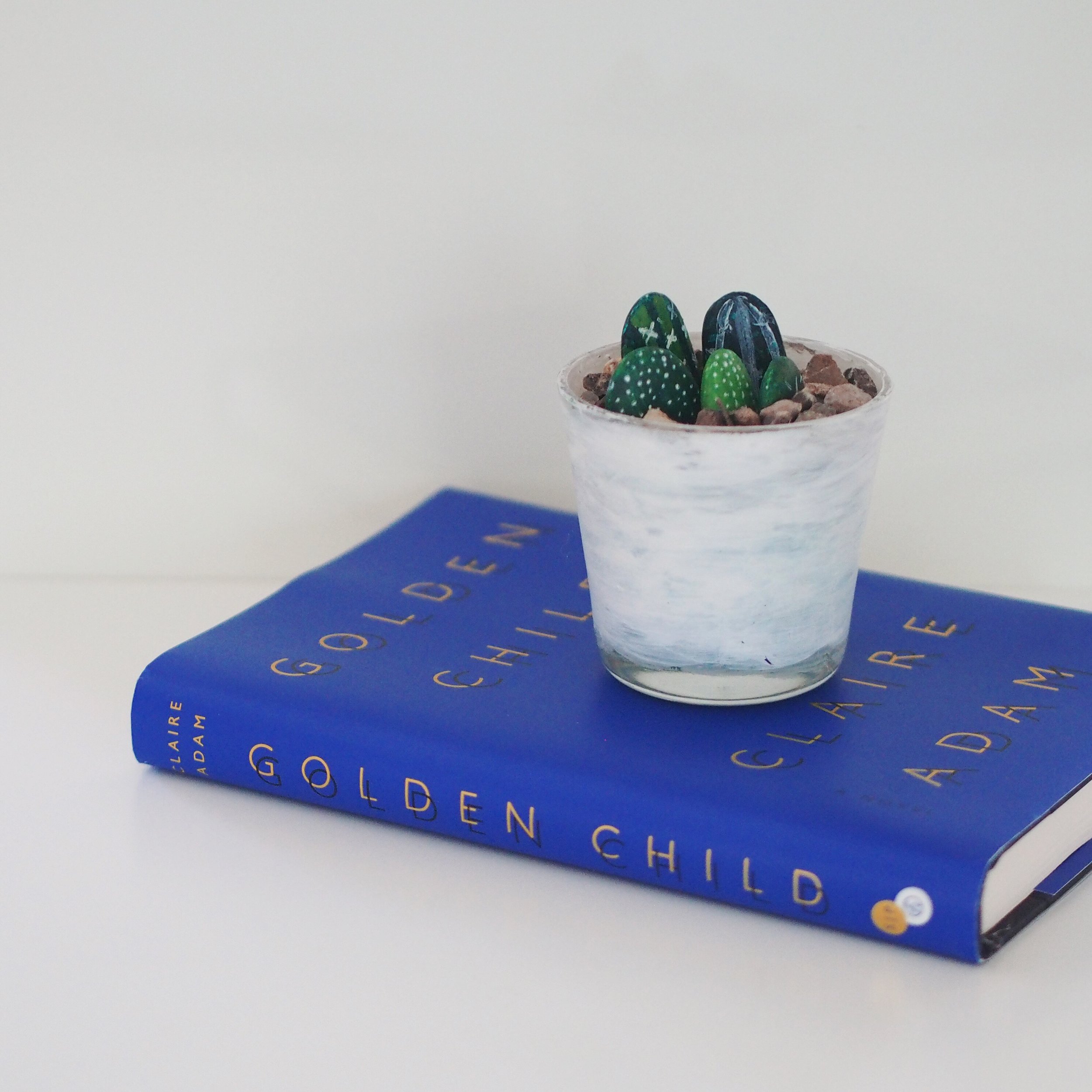In the read-up to Sydney Writers' Festival: four must-read novels
Bingeing on great books before a writer’s festival feels a bit like cramming for an exam you’re actually excited about taking. There’s a sense of anticipation at what awaits you, an eagerness to know more, and a desire to actively participate in the big, passionate conversation about books.
As Sydney Writers’ Festival draws near, I’m thrilled to share with you the first of two posts detailing my recommended pre-festival reads. Today, it’s four brilliant novels, all penned by women who have made Australia their home.
At first glance, there seems little common ground to connect these four works. One is literary fiction, another a thriller, yet another is a work of crime fiction, and one an historical mystery spanning decades. Yet each of these books resonates with me for their commitment to rich characterisation and a deep dedication to place.
The Lost Man by Jane Harper
‘The headstone threw a small shadow. It was the only shade in sight and its blackness was slippery, swelling and shrinking as it ticked around like a sundial. The man had crawled, then dragged himself as it moved. He had squeezed himself into that shade, contorting his body into desperate shapes, kicking and scuffing the ground as fear and thirst took hold.
He had a brief respite as night fell, before the sun rose and the terrible rotation started again. It didn’t last as long on the second day, as the sun moved higher in the sky. The man had tried though. He had chased the shade until he couldn’t anymore.’
This is the image that opens The Lost Man: a dead body sprawled in the meagre shifting shadow of a lone headstone in an isolated patch of Queensland desert. Later two brothers, Nathan and Bub, meet at the spot which hovers in the vast space between their homes on the massive family property. The man at the headstone is their middle brother, Cameron.
Cameron’s inexplicable death fuels the mystery at this story’s heart, but it also becomes a catalyst which opens old wounds and threatens to bring to light long-buried secrets. A weighty sense of isolation permeates this novel, leading to questions about community, solitude, family, and mental health. The pacing is excellent, maintaining a breathless tone of suspense throughout, and Harper’s writing is crisp and pared-back.
What stands out most in this novel, though, is the atmosphere – as vast and inscrutable as the landscape itself – and the characterisation. In many thrillers, characterisation tends to play second fiddle to the details of the crime. Not so here. With The Lost Man, the questions of what makes a man tick and how trauma and isolation play into his psyche are just as pivotal as the truth behind Cameron’s death. It is a filmic exploration of the almost spiritual loneliness of the Australian outback, a loneliness that gets into people’s veins and is engraved in the lines of their skin. In many ways, this novel makes me think about central Queensland the way Steinbeck makes me think about the Dust Bowl in 1930s USA, and honestly I can’t think of much higher praise than that.
The Fragments by Toni Jordan
Author Toni Jordan was inspired to write The Fragments partly by the late discovery and publication of Harper Lee’s divisive second-first book, Go Set A Watchman. Jordan was fascinated by the cult of mystery that can surround the writer “who maybe wrote one perfect work” as well as how that identity might be challenged by the release of a second novel.
The Fragments opens on a drowsy summer day in Bjelke-Petersen era Brisbane. Caddie Walker, a failed academic who works as a bookseller, waits outside the Queensland Art Gallery to see the exhibition dedicated to the famed Karlson fragments. Inga Karlson was a brilliant and reclusive woman who died in bizarre circumstances after her first book’s glittering success. All that’s left of her mysterious second book is seven tiny charred snippets of printed copy, the only pieces saved from the warehouse fire which also claimed Karlson’s life.
For Caddie, the promise of seeing the fragments – to be so near the elusive physical proof of the writer she so adores – is intoxicating. Yet Caddie is unaware that her own life and that of Karlson are about to be drawn even closer together. An encounter with a stranger in the gallery queue, a chance conversation, opens up a mystery which brings Caddie into contact with old and new loves and challenges her moral centre.
The motif of the fragments is carried through the construction of the story, as the dual narrative flutters between 1980s Brisbane and Pennsylvania and New York in the twenties and thirties. Through these alternating stories, we come to know more of Karlson just as Caddie does, and we meet a third woman, Rachel, too. The US narrative is a sort of grimy Gatsby scenario, while the passages set in Brisbane are all gritty nostalgia. Jordan evokes the sense of an oppressive, humid summer here so well; the weight of it is palpable. Having grown up in Brisbane when it still retained the character of an overgrown country town, Jordan manages to capture the quiet and hopeful energy of a town simply busting to grow up, and her depiction of beloved familiar landmarks and haunts draws a satisfying jolt of recognition.
In this way, The Fragments is a tribute to Brisbane. But it is also a love letter to books, a treatise on writing and identity, an ode to the research process, and a good old-fashioned mystery. Read it while it’s still hot out; it will make the text feel even more alive.
The Scholar by Dervla McTiernan
While The Lost Man is set under the unbroken sun in central Queensland and The Fragments hugs the shoreline of the south east, Dervla McTiernan’s The Scholar is set much further afield. Although McTiernan makes her home in Western Australia, she grew up in Ireland and has chosen Galway as the setting for her Cormac Reilly novels.
The Scholar, a follow-up to McTiernan’s debut The Ruin, sees Cormac Reilly and his partner Dr. Emma Sweeney in emotional limbo after the events of the previous book. When Emma is the first witness on the scene of a brutal crime, it feels like more than she should have to bear. But Emma’s ties to the crime do not end there, as the death is linked to the very company funding Emma’s research. Tensions are strained between Cormac and Emma, Cormac and his colleagues, and contacts within the university city as motives are uncovered and money refuses to talk. As personal and professional loyalties are put to the test, we are offered a glimpse into the personal lives of the characters, each of whom brings their own biases, grief, and hang-ups to their work.
This depth of insight is rare in crime fiction, and it’s one of the reasons The Scholar makes for such a compelling, thoughtful read. McTiernan’s writing is taut and honest, with none of the characterisation sacrificed for the sake of the plot. There are no extraneous details, nor salacious depictions of evil to titillate readers. Instead, the novel feels authentic, with flawed and fragile characters and a deliciously moody noir aesthetic.
The Life to Come by Michelle de Kretser
‘All that space might have been restful but scraped Ash’s nerves instead. Like reality TV, it was both harrowing and dull. How did Sydneysiders trim they children’s fingernails or buy stuff from the Apple store or sign up for Fun Runs with this enormity breathing down their necks?’
I can’t help but compare Michelle de Kretser’s The Life to Come to Virginia Woolf’s The Years. The very structure is similar: in the absence of one particular narrative, a series of episodes separated by time and often place (Sydney, Sri Lanka, and Paris), which tell of the trajectories of different lives. The five segments of The Life to Come are both linked and unlinked, connected by a central character, Pippa, an ambitious and unbrilliant writer who hovers on the periphery of the others’ stories. Pippa never seems fully alive, fully realised, even to her own mind, and lingers in the space between the “almost” and the “once was.” She never quite fulfils her potential – or perhaps she never truly had any.
What links these stories more than the ubiquitous Pippa, though, is their exploration of identity and belonging. Characters blunder through their own humanity, alternately burdened by moments of illumination or experiences which reveal a complete lack of awareness. Ego and intellect get in the way of peace, self-consciousness and disaffection in the way of happiness, but the naïve and hopeful characters who don’t labour under the weight of their own history are no better off, coming up against others’ perceptions of them and finding they don’t recognise themselves there.
At times unsettling and darkly humorous, the novel pokes fun at those who feel too much, those who feel too little, and intellectual snobbery. Nothing is free from the cutting irony here. Academia comes under the knife; so, too, contemporary hippies, vague attempts at cultural awareness, and Australia’s literary scene (“After some difficulty, a professor who would admit to having once read an Australian novel was found.”). And here is another link to Woolf: everything has meaning, and nothing does. Of this, Marcel Theroux writes, “With a tone that often refuses to indicate whether a detail is important or trivial and that wavers between satire and sincerity, the book is a difficult read at times.”
Challenging at times, yes, but also oddly compelling, leaving us to wonder whether we ever truly know ourselves at all.
Sydney Writer’s Festival runs from the 29th of April to the 5th of May this year. Check out the program for full details of events and interviews or jump straight to sessions with Jane Harper, Toni Jordan, Dervla McTiernan, and Michelle de Kretser. And follow my instagram feed over the next week for a chance to win one of two of these incredible novels.




